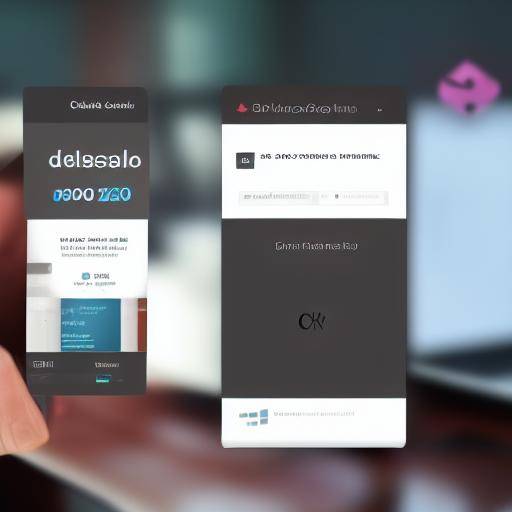
Introduction
Personal development and ethical integrity are fundamental to the growth of an individual both in his or her personal and professional life. In the search for a sense of authenticity and solid values, it is essential to develop a personal code of ethics that guides our decisions and actions. In this article, we will explore in detail how we can develop a personal code of ethics, integrating concepts of personal development and integrity, and how this impacts positively on our daily lives.
History and Context: The Origin of the Code of Ethics
The concept of codes of ethics has its roots in antiquity, where civilizations and philosophers such as Socrates and Confucius promoted the importance of morality in people's lives. Over time, various disciplines and professions have adopted specific codes of ethics to regulate and guide the conduct of their members, which has contributed to the promotion of integrity and respect in different labour and social fields.
Development and Evolution of Codes of Ethics
The development of codes of ethics has experienced significant evolution throughout history. From the codes of conduct of ancient civilizations to modern professional ethical codes, each reflects changes in social values, cultural norms and the demands of a society in continuous transformation.
Benefits of Personal Development and the Integration of an Ethics Code
Personal development and the integration of an ethics code will not only benefit individual life, but also contribute value at the collective level. Ethical decision-making promotes trust and credibility in the working and social environment, leading to stronger relationships and greater cohesion in society.
Deep Analysis: Learning and Personal Development
Personal development is a continuous process that involves acquiring new skills, knowledge and attitudes to improve the quality of life and achieve the desired goals. Integrating a code of personal ethics into this process ensures that growth occurs in harmony with the moral and ethical values we consider fundamental.
Comprehensive Review: Integrating Integrity and Personal Development
Integrating integrity into personal development helps us build an authentic identity based on solid ethical principles. This comprehensive approach elevates self-esteem, trust and self-respect, which in turn strengthens interpersonal relationships and promotes coherence between our words and actions.
Comparative Analysis: Code of Ethics, Personal Development and Integrity
The comparison between a code of personal ethics, personal development and integrity reveals the interconnections and synergies between these three fundamental aspects for the life of an individual. While the code of ethics establishes guidelines for ethical conduct, personal development and integrity provide dimension and authenticity to this framework of values.
Tips and Recommended Actions
Developing a personal code of ethics is not only a theoretical issue, but a practice that requires concrete actions. Some practical advices include the reflection and self-assessment of our values, the identification of behaviors that strengthen our ethics and the integration of these values into our daily decision-making.
Industry Perspectives and Expert Reviews
Ethical and personal development experts highlight the importance of fostering an ethical culture both individually and organizationally. The impact of well-established codes of ethics on improving the working environment and the reputation of companies is evident, highlighting the need to integrate these principles into all aspects of our lives.
Case Studies and Real Life Applications
Case studies show how the adoption of a personal code of ethics has positively influenced decision-making and conflict resolution, both in professional and personal environments. These concrete examples illustrate the relevance and practical impact of having a solid ethical code in all spheres of life.
Future Trends and Predictions
The future of personal development and codes of ethics promises to continue to evolve and integrate new forms of thought, technology and interdisciplinary approaches. The demand for professionals with strong ethical values and personal development is expected to continue to increase, highlighting the continuing relevance of these aspects in a changing world.
Conclusions and FAQs
In conclusion, personal development, integrity and the construction of a personal code of ethics are fundamental to the integral growth of an individual in all aspects of his or her life. These elements, far from being limited to the merely conceptual, have a direct practical impact on decision-making, interpersonal relations and the positive contribution to society.
Frequently asked questions
- What elements should be considered when developing a personal code of ethics? In developing a personal code of ethics, it is essential to consider our fundamental values, ethical principles, and how these are integrated into our daily decisions and actions.
- How does personal development influence the integrity of an individual? Personal development strengthens the integrity of an individual by promoting self-consciousness, authenticity and alignment of his actions with his fundamental values.
- What is the importance of integrity in working and professional environments? Integrity is fundamental in working and professional environments, as it builds trust, credibility and value both in working relationships and in the reputation of a company or organization.
- How do professional ethics codes influence the personal development of professionals? Professional ethics codes impact personal development by promoting coherence between personal values and ethical requirements of the profession, contributing to integral growth.
- What is the social impact of a society based on solid ethical codes? A society based on strong ethical codes promotes trust, mutual respect and social cohesion, fostering an enabling environment for development and collective well-being.
- How can we promote an ethical culture in our working or social environment? Promoting an ethical culture involves promoting transparency, accountability and commitment to shared values in all aspects of our work and social life.
Summary
Developing a personal code of ethics that integrates personal development and integrity represents a commitment to oneself and others to establish an ethical framework that guides our daily decisions and actions. This approach, far from static, requires continuous reflection and active commitment to remain aligned with our fundamental values. The result, personal growth and a positive contribution to the surrounding environment.






















































